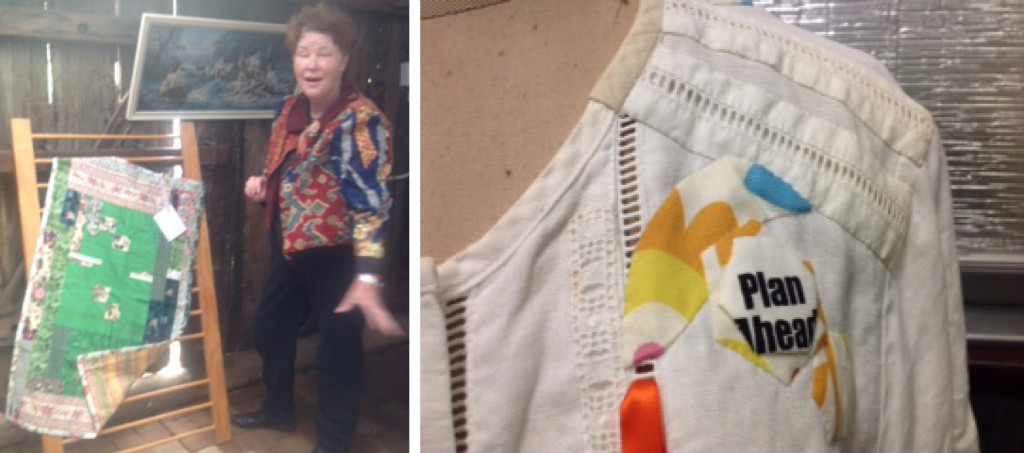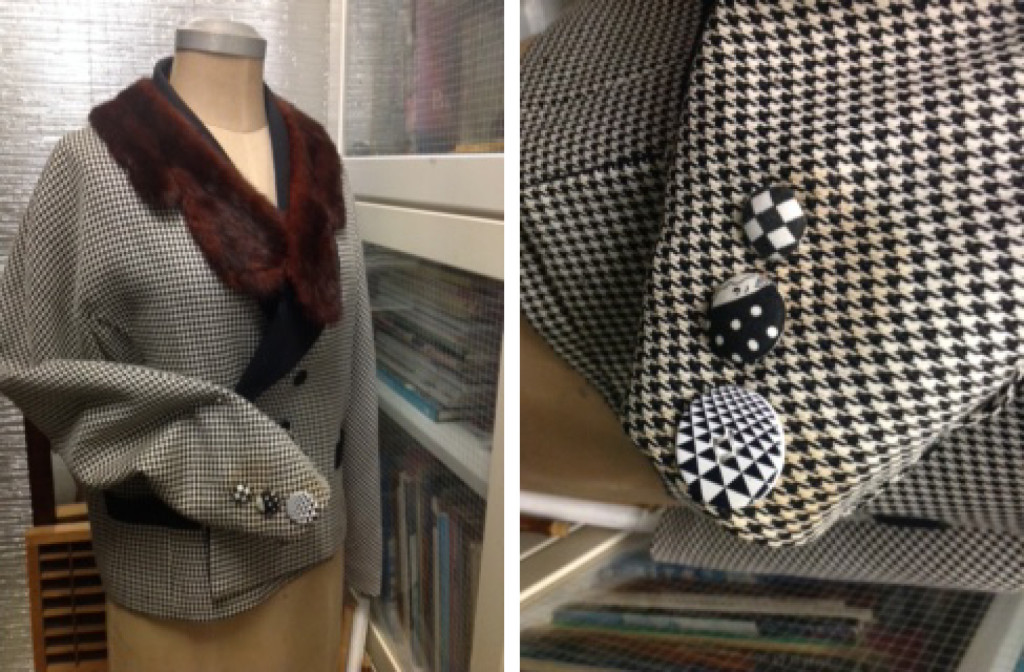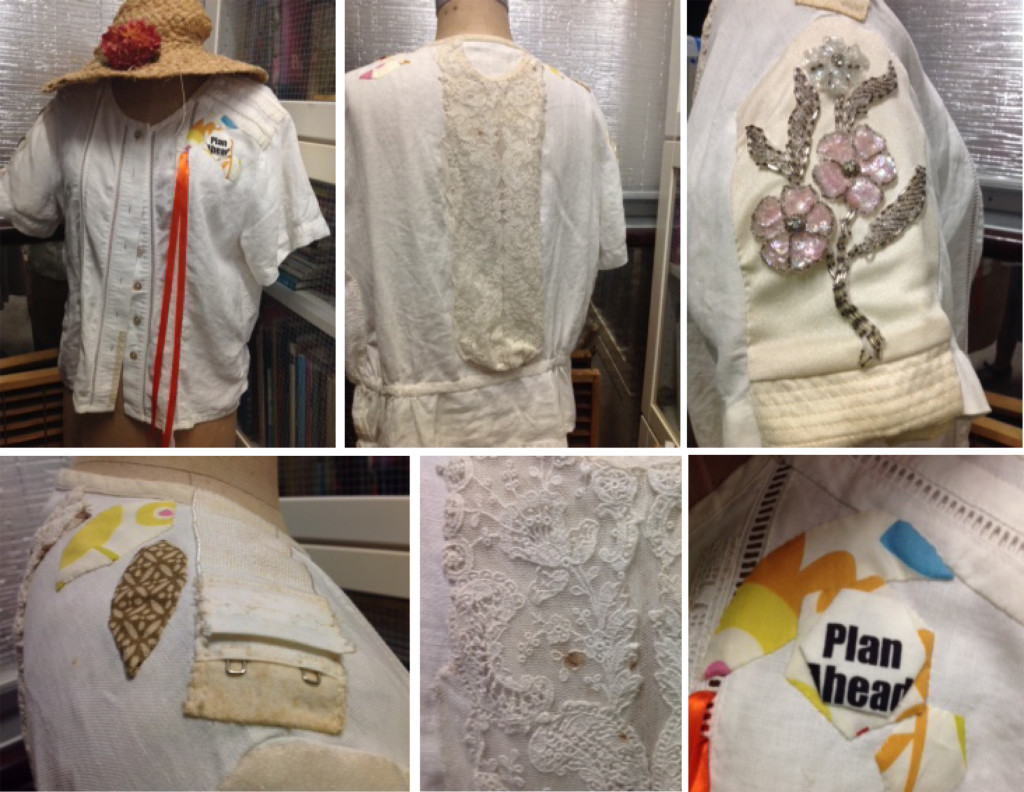Jennifer Bain has been sewing most of her life. Her mother taught Jenny to sew and her Dad taught her to knit. And her commitment to sewing has become more earnest since 1987 when she took to patchwork.
“In 1987, I did a quilt-making course in Hunter Street, Newcastle where I made an Amish-style quilt – Sunlight and Shadows – and since then I have made more than 100 quilts. After discovering the Modern Quilt Movement, I have focused on challenging myself by sewing in meaningful ways,” Jenny said.

Jennifer Bain shows how she brings meaning to quilts and garments as part of The Slow Clothing Project
“In 2013, I won a scholarship with NSW Quilters Guild on the title The Corruption Cycle looking at what we value in society in terms of textiles. This exploration arose from my background in sociology and anthropology, exploring the nature of power in our society, how ethics are manipulated and how well we as individuals cope.
“I believe that what we discard and what we value in a physical sense speaks volumes in how we treat each other. I am inspired by The Gees Bend Project in America featuring expressive quilts made by descendants of slaves. My quilts often use salvage art, historic fibre and hand-stitching to provoke contemplative meaningful thought, rather than froth and bubble prevalent in today’s society.
“I have always been a bit of a recycler, before it was fashionable, although you would never admit it to people! They would never be impressed, more likely you would be frowned upon as being poor, whereas now, it is a badge of honour!“
In addition to quilts, Jenny makes new clothes from old at her home base of Laguna, New South Wales.
“I refashion jackets, collect vintage items from op shops and recycle shirts for wearing with other outfits. If there is a hole in a garment, I appliqué a hexagon over the top of it. About 80 per cent of my wardrobe is upcycled.”
“What interests me about slow clothing is the wearability of items that someone sees no value in. All you need is creativity to make a new item from old. Often times a garment has beautiful memories of people and places, and I can keep those memories by restyling/hexagon patching, when others might throw the garment away.”
“Fast fashion is consumerism gone mad. I much prefer the concept of slow, with slow cooking and slow/mindful knitting being concepts that I live by. Handmade skills contribute to our psychological wellbeing. Mending and using the Sasiko stitch (Japanese) you can refashion a linen tea towel into a work of art!
“Using your time wisely and making meaning from this ‘fast’ world in which we live, is intrinsically rewarding and satisfying – you are only limited by your creativity.”
 An example of Jenny’s creative upcycling is how a mark on a jacket sleeve is camouflaged with buttons that deflect attention and draw the eye back to the fabric detail. This project Jenny called ‘A- MEND’/ MENDACITY.
An example of Jenny’s creative upcycling is how a mark on a jacket sleeve is camouflaged with buttons that deflect attention and draw the eye back to the fabric detail. This project Jenny called ‘A- MEND’/ MENDACITY.
For The Slow Clothing Project, Jenny reclaimed a linen blouse that had begun to fray around the neck. She attached bias binding to get more wear out of it. Then a little hole developed, so she appliquéd a hexagon over and realised it was likely to become more threadbare in other parts. That’s when she decided to embellish the entire blouse and turn it into something original and outstanding.
“From the mundane to the wonderful. For epaulets, there are vintage bra extenders from my Mum, lace panels from people who contributed to the project, to the spectacular embellished piece on the sleeve. Why not exalt the mundane? If we extrapolate to people, would we ‘throw’ them out when they are not ‘useful’? No we wouldn’t.
 “I did not buy anything to attach to the blouse, I either had bits and pieces or people gave me things and to top it off, the blouse was originally a hand me down from my sister! What a journey!
“I did not buy anything to attach to the blouse, I either had bits and pieces or people gave me things and to top it off, the blouse was originally a hand me down from my sister! What a journey!
The photo at the top of this post is of Jenny wearing a handmade jacket while presenting her Corruption Cycle quilt talk.